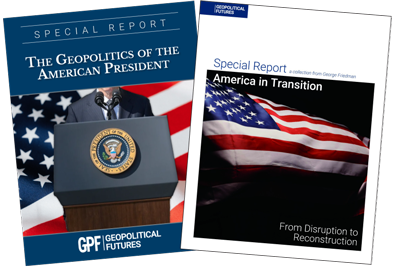

Support
Toll Free: 1-888-982-8217
International Callers: 1-512-687-3444
Copyright © 2024 Geopolitical Futures®. All rights reserved.
Sign up now and receive our special report Understanding our Geopolitical Model
Get weekly analysis from New York Times bestselling author George Friedman and our global team of analysts, plus special offers.
 America in Transition &
America in Transition &